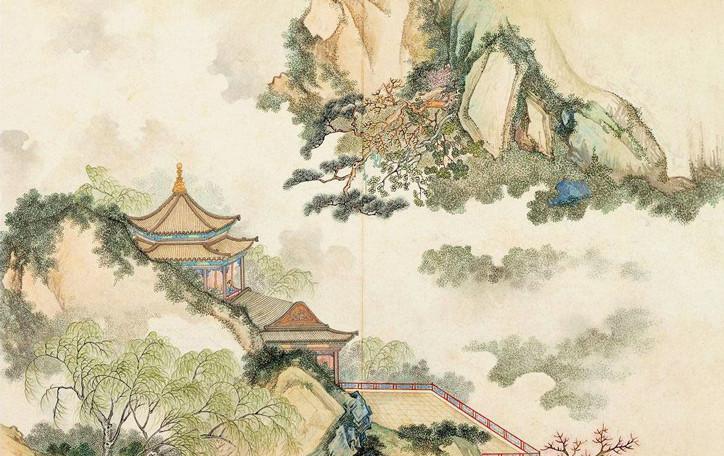Buy the apricot blossoms, and return from ten years to the beginning. The artificial mountain west bank medicine is east, full of red branches. Spinning around and spinning into the air, white-haired lovers are more sorry. At dusk, I toast the wine to the east wind and calmly.
Sikong Tu was a late Tang Dynasty scholar, and his main achievement was to write a "Twenty-Four Poems". Writing poetry, studying poetry, he was an expert. Surprisingly, he occasionally fills in words. His superb literary accomplishment made him think of the decline of the dynasty from the fall of the apricot blossoms, and then created this song "Jiuquanzi Buy apricot blossoms". "Jiuquanzi" was originally a Tang Dynasty teaching song, and later became a song card. "Buy the apricot blossoms" is the title of this poem, which was drafted by posterity.

The first sentence uses the inverted technique, the correct word order should be, just returned from ten years away from home, found that the apricot blossom tree I bought had bloomed in the spring breeze. To the west of the rockery and to the east of the medicine garden are all blooming apricot blossoms. Sikong Tu looked at the apricot blossoms around him, a little mixed feelings. What he was thinking, of course, was a matter of home and country.
Some people may say, don't pull it, see the apricot blossom associated with the family and the country, this is also too able to make up a story. In fact, as long as you understand Sikong Tu's life experience, you know that this is not a story. Having this kind of feeling is too normal for Sikong Tu. He was born into a family of eunuchs, and in his youth he participated in the imperial examination and entered the shogunate of a high official. Later, Lu, the Minister of Foreign Affairs, appreciated his talent and summoned him to the imperial court and made him a member of the Ceremonial Department. After that, in order to repay Lu Yi's kindness, Sikong Tu decided to bow down for the Tang Dynasty.
In the era when Sikong Tu was an official, the Tang Dynasty was in a state of turmoil, with constant internal and external troubles. The eunuchs of the inner power rebelled, and the Huangchao rebellion attacked Chang'an. Sikong Tu was repeatedly hit during his time as an official, which made him doubt whether the initial choice was correct. After much thought, he retreated and retreated to his hometown. From ambition to returning home, but ten years has completely changed a person.
After Sikong Tu returned to his hometown, he avoided the world and hid at home to study and learn. When he thought he was disheartened and there was nothing more to impress him, he saw a full of apricot blossoms. The apricot blossoms bloom fast and fall fast. Before long, the apricot blossoms began to wither. This is more like Sikong Tu himself, and in the blink of an eye, he has become a white-haired old man.
This old man was amorous in his heart, and he felt sad when he saw the apricot blossoms withering. From this, he saw that the Li Tang Dynasty was gradually going into decline, and he would also be heartbroken. At dusk, raise your glass and pray for the east wind, hoping that the east wind will be gentler and not too violent.
The apricot blossoms bought in ten years have become a forest of apricot blossoms ten years later. The grass is lush and the spring is bright, but it is impossible to extend the flowering period. The spring breeze blows and falls colorfully. Watching the beauty disappear in front of your eyes, it is easy to think of the fact that the Li Tang Dynasty has turned from prosperity to decline. Sikong Tu thus completed the mental journey from "tragic things" to "sad world", and the final fate of the Li Tang Dynasty would be scattered by the east wind like an apricot blossom. Sikong Tu hopes that all this happens slowly.
According to historical records, in 907, Zhu Wen usurped power and established Hou Liang. In the same year, Sikong Tu died of hunger strike. He chose to live in seclusion for the rest of his life, and finally chose to follow the Li Tang Dynasty to perish. At this time, reading this song "Jiuquanzi" again, you will feel particularly sad.